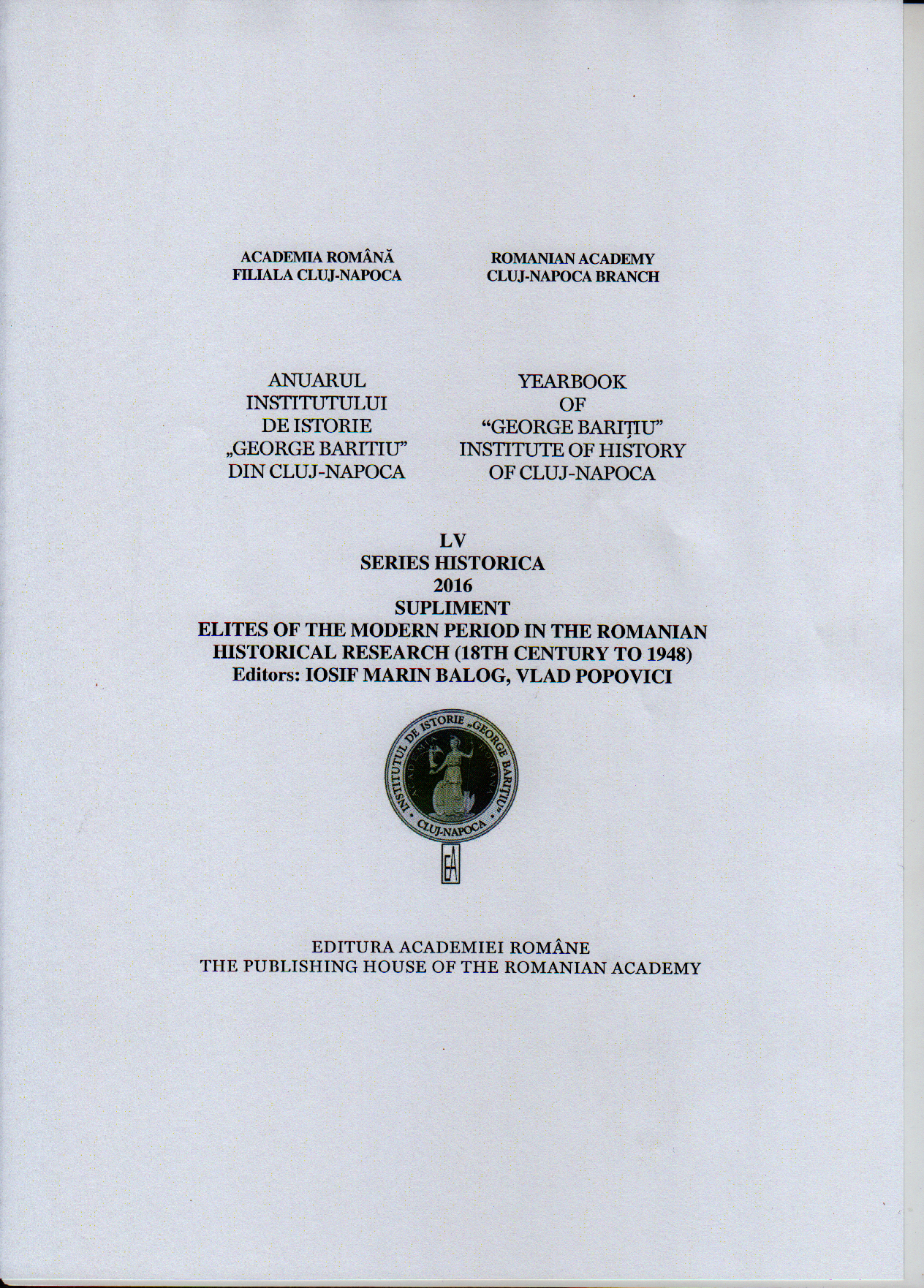Conexiuni: O perspectivă istorică asupra intermedierii între grupuri
Connections. A Historical Perspective on inter-Group Brokerage
Author(s): Diana CovaciSubject(s): History, Social history, Modern Age, Theory of Communication, 19th Century
Published by: Editura Academiei Române
Keywords: Minority influence; Social change; Brokerage; Transylvania; National representatives
Summary/Abstract: The present study attempts an exploration of a hypothesis about the role of intermediaries in the history of Transylvanian Romanians during the Austro-Hungarian Empire. The paper is divided into three parts: the first two present the theoretical perspectives of the social influence of minorities and the role of brokers, two concepts borrowed from social psychology and sociology. In the third part of the study I have tried to combine these theoretical approaches into a working hypothesis in history, linked to the reassessment of the function performed in the evolution of Romanian society by a group labelled as deviant from the norm: the Romanians that acted as intermediaries between their own national group and the Hungarian state authorities. In terms of power, minority groups consists of people who think and act differently from the rest of the society in which they live, circumventing its rules in varying degrees. Communication between groups can be achieved directly when the groups are connected, or indirectly, through an intermediary (broker, middleman etc). There is a significant demand for intermediaries in those areas where communities are culturally, linguistically or geographically separated, and the reliable information flow between groups is reduced or absent. In 19th century’s Transylvania we are dealing with a border province in a multinational empire, and a population majority of language and denominations different from the ones of the State. The Romanian political elite rejected more or less overtly the contacts with state authorities, sometimes placing itself in public opposition to the central government. Communication between the two groups was quite difficult and negatively polarized due to latent conflicts and mutual distrust. In this context, the communication channels between groups were diverted, and the role of intermediaries was taken and assumed by a number of Romanian personalities among the intelligentsia.
Journal: Anuarul Institutului de Istorie »George Bariţiu« - Series HISTORICA - Supliment
- Issue Year: LV/2016
- Issue No: LV/Sup
- Page Range: 17-32
- Page Count: 18
- Language: Romanian

